Kitchen Manager interview preparation is crucial in today’s $1 trillion U.S. restaurant industry, where efficiency, leadership, and food safety define success.
Whether you’re hiring a Kitchen Manager or a candidate ready to advance your career, this guide offers practical strategies and insights to help you excel in every stage of the interview process.
How To Prepare for a Kitchen Manager Interview as an Employer
To attract and hire the right candidate for your establishment, consider the following steps:
- Clearly outline Kitchen Manager responsibilities
- Craft thoughtful Kitchen Manager questions
- Share your establishment’s values, mission and opportunities for growth
How To Prepare for a Kitchen Manager Interview as an Applicant
To stand out as a strong candidate, follow these preparation steps:
- Research the establishment
- Match your experience to the role
- Practice responses to common questions
- Dress appropriately
Questions To Avoid Asking a Kitchen Manager as an Employer
To ensure a fair, inclusive and lawful interview process, avoid the following types of questions:
- Questions about age or date of birth
- Questions about marital or family status
- Questions about citizenship or national origin
- Questions about health or disabilities
- Questions about religious practices
General Kitchen Manager Interview Questions for Employers and Applicants
Use the general questions to determine whether the applicant has what it takes to succeed in a leadership role such as that of a Kitchen Manager.
1. What motivates you to pursue a leadership role in kitchen management?
- For employers: Assess the candidate’s leadership skills.
- For applicants: Share your passion for leading a team.
Example answer: "I enjoy creating efficient workflows and mentoring staff to achieve high standards. Seeing a team succeed and customers leave satisfied motivates me every day."
2. How do you prioritize tasks during a busy service?
- For employers: Evaluate the candidate’s time management skills.
- For applicants: Highlight your ability to multitask.
Example answer: "I assess urgency, ensuring that high-priority items like food prep and plating are completed first. Communication with my team ensures smooth operations during service."
3. Describe a time when you implemented a new system or procedure. How did it impact the team?
- For employers: Understand the candidate’s adaptability.
- For applicants: Provide an example of positive change you led in a previous role.
Example answer: "I introduced a digital inventory system to reduce waste. It streamlined ordering processes and saved 15% on costs within the first month."
4. How do you handle disagreements among kitchen staff?
- For employers: Assess the candidate’s conflict resolution.
- For applicants: Share your approach to maintaining a harmonious work environment.
Example answer: "I address issues immediately by listening to both sides and finding common ground. Resolving conflicts quickly helps maintain team morale and productivity."
5. What steps do you take to ensure consistent food quality?
- For employers: Gauge the candidate’s attention to detail.
- For applicants: Explain your methods for maintaining high-quality food preparation.
Example answer: "I conduct regular quality checks during prep and service. Training staff on standardized recipes and techniques ensures every dish meets expectations."
6. How do you foster a positive and collaborative team environment?
- For employers: Explore the candidate’s ability to build strong teams.
- For applicants: Share strategies for motivating your team.
Example answer: "I promote open communication and recognize achievements. Encouraging team input on menu ideas has boosted morale and creativity in my previous roles."
7. What role does customer feedback play in your decision-making?
- For employers: Learn how the candidate incorporates feedback into operations.
- For applicants: Describe how you use feedback to improve services.
Example answer: "I take customer feedback seriously and use it to identify areas for improvement. When a guest mentioned slower service times, I restructured the workflow to enhance efficiency."
8. How do you manage and track kitchen inventory?
- For employers: Assess organizational skills.
- For applicants: Provide an example of your approach to inventory management.
Example answer: "I use a digital tracking system to monitor stock levels and minimize waste. Weekly audits help prevent shortages and maintain cost efficiency."
9. What’s your approach to training new staff?
- For employers: Understand the candidate’s mentoring methods.
- For applicants: Highlight your role in staff development.
Example answer: "I develop step-by-step guides for each station and pair new hires with experienced team members. Regular feedback sessions help them adapt quickly."
10. How do you ensure compliance with food safety regulations?
- For employers: Verify the candidate’s knowledge of safety protocols.
- For applicants: Demonstrate your expertise in maintaining a safe kitchen environment.
Example answer: "I schedule regular health inspections and conduct training sessions on hygiene practices. Staying updated on regulations ensures compliance and a safe dining experience."
Role-Specific Kitchen Manager Interview Questions
Use this set of questions to assess the candidate's abilities directly related to the Kitchen Manager role.
1. How do you ensure food safety and sanitation standards are consistently met in the kitchen?
- For employers: Assess the candidate’s knowledge of food safety protocols.
- For applicants: Share specific strategies or systems you use.
Example answer: "I conduct daily walk-throughs to check for cleanliness and ensure staff follow sanitation protocols. In my previous role, I introduced a checklist system that reduced health inspection issues by 20%."
2. Can you describe your approach to inventory management and reducing food waste?
- For employers: Evaluate the candidate’s ability to control costs.
- For applicants: Highlight your experience with tracking inventory.
Example answer: "I maintain accurate inventory records and analyze sales trends to order the right quantities. At my last job, I implemented a first-in, first-out system that minimized spoilage and saved 10% on food costs."
3. How do you handle scheduling and staff management during peak times?
- For employers: Understand the candidate’s organizational skills.
- For applicants: Provide examples of how you optimize staffing.
Example answer: "I use scheduling software to predict peak times and ensure adequate coverage. I also cross-train team members, which allows flexibility during unexpected rushes."
4. What steps do you take to maintain quality and consistency in menu items?
- For employers: Gauge the candidate’s ability to enforce standards.
- For applicants: Share your methods for ensuring every dish meets expectations.
Example answer: "I create detailed recipe guides and conduct regular training sessions. During service, I frequently taste dishes to ensure they align with the menu’s quality standards."
5. Can you provide an example of how you improved kitchen operations in a previous role?
- For employers: Assess the candidate’s problem-solving and innovation skills.
- For applicants: Share a specific instance where you identified an issue and implemented a successful solution.
Example answer: "In my last role, I noticed delays in ticket times during dinner service. I reorganized the kitchen layout to streamline communication between stations, reducing ticket times by 15 minutes on average."
Kitchen Manager Statistics in the United States
- Kitchen Managers earn an average of $56,460 per year.
- Approximately 170,000 Kitchen Managers are employed across the United States.
- 28% of Kitchen Managers are women, while 72% are men.
- 46% of Kitchen Managers are over 40 years old, 28% are between 30 and 40, and 24% are between 20 and 30.
- 30% of Kitchen Managers hold a bachelor's degree, 31% have an associate degree and 27% possess a high school diploma.
If you wish to learn more Kitchen Manager statistics like the ones above, explore our Kitchen Manager statistics and demographics page.
Where To Find Kitchen Manager Jobs
Navigating the job market for Kitchen Manager positions requires utilizing platforms that cater specifically to the hospitality industry.
Below is a curated list of top job boards, each offering unique features to assist in your job search.
1. OysterLink

OysterLink is a premier platform dedicated to connecting hospitality professionals with leading employers.
It offers a streamlined experience tailored to the industry's unique demands and includes resources such as interview questions, guides, how to write a CV or resume for the specific position and more.
Pros of using OysterLink:
- Exclusive focus on hospitality roles, ensuring relevant job listings
- Advanced search filters to match candidates with suitable positions
- Access to a network of reputable employers seeking qualified professionals
2. HCareers
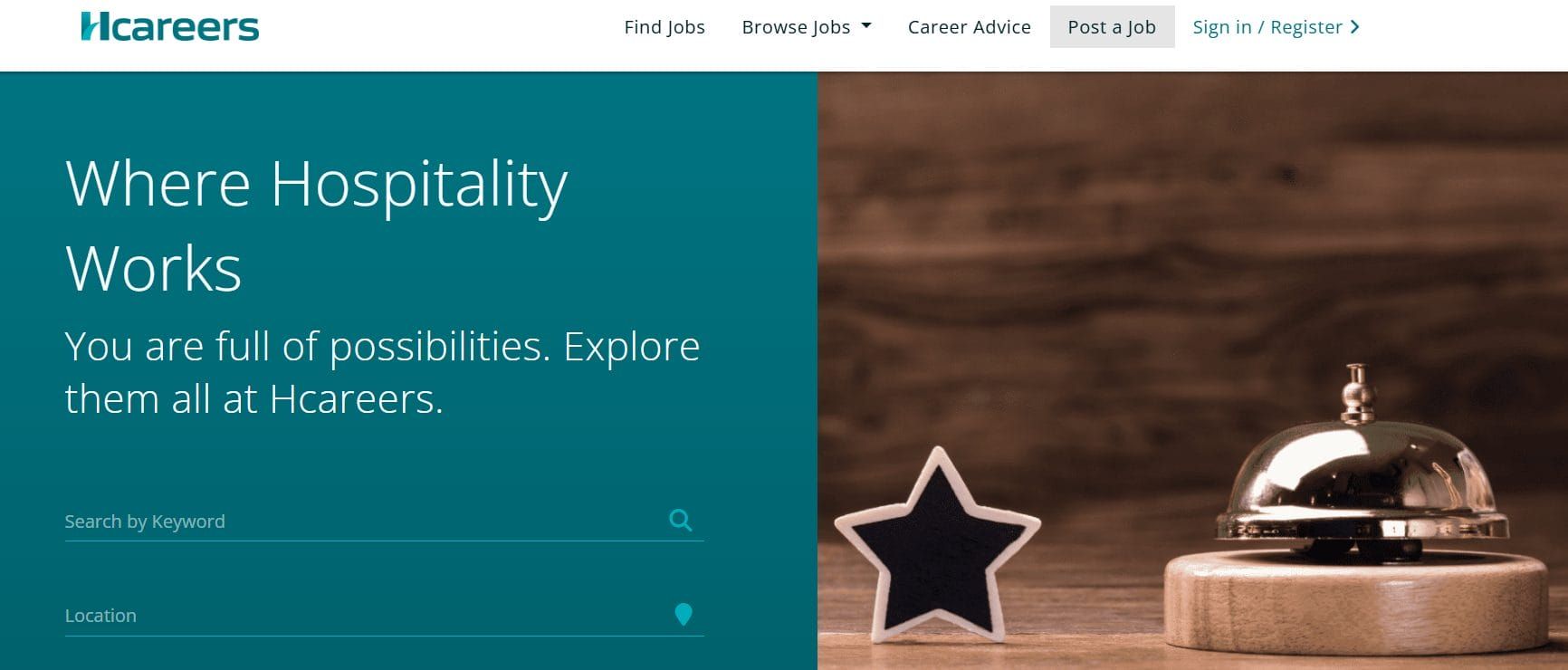
Hcareers is one of the most recognized platforms for hospitality jobs, offering thousands of listings from hotels, resorts and restaurants worldwide.
For Kitchen Managers, it provides a range of opportunities across diverse establishments, from boutique eateries to global chains.
| Pros | Cons |
| Robust database of hospitality-specific job postings across various sectors. | Some advanced features require a premium membership. |
| Intuitive interface with tools for refining job searches and applying easily. | High user activity can lead to increased competition for roles. |
| Career advice articles and resources tailored to hospitality professionals. | Limited coverage for remote or hybrid positions compared to other platforms. |
3. Culinary Agents
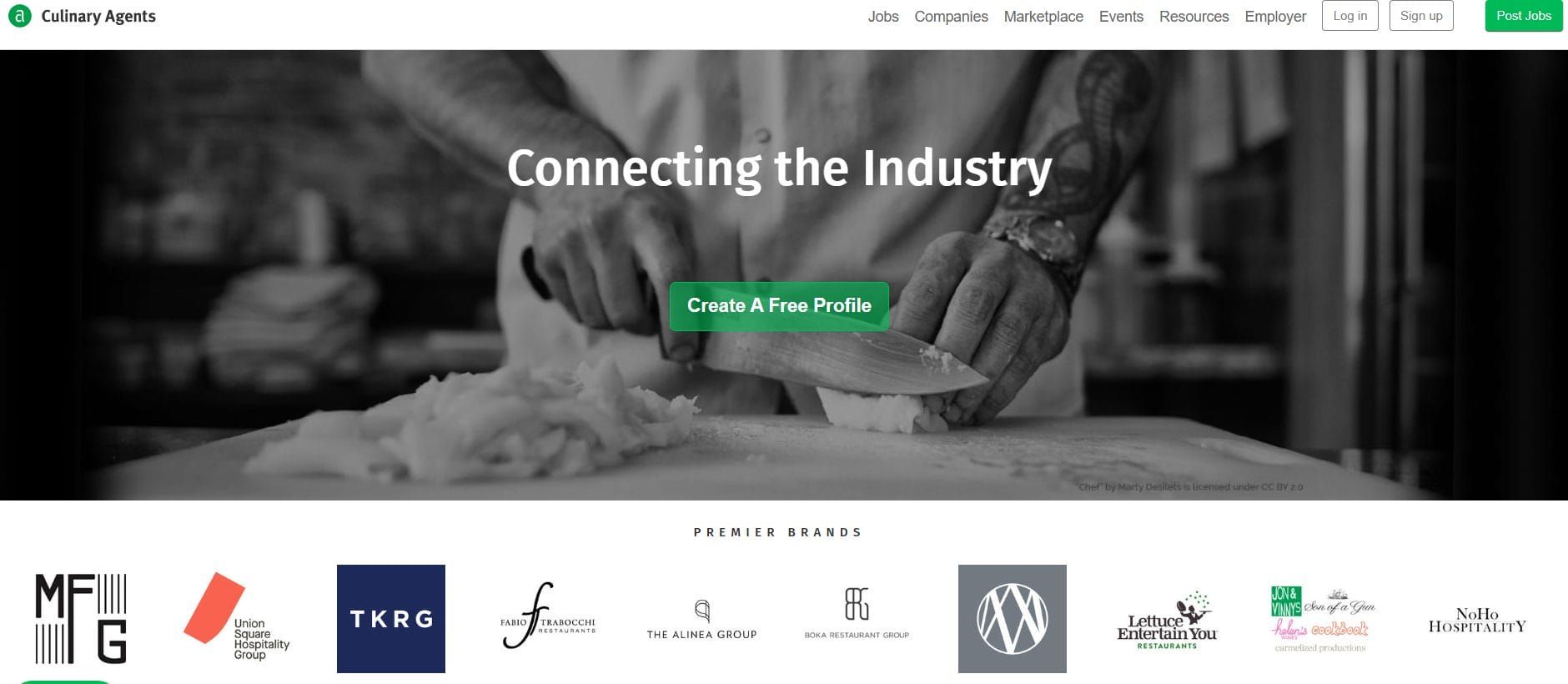
Culinary Agents focuses on food service and restaurant professionals, making it a great resource for Kitchen Managers.
It offers not just job postings but also networking tools to connect with industry leaders and mentors. The platform’s career content provides insights to help users grow professionally.
| Pros | Cons |
| Dedicated to food service roles, ensuring targeted opportunities | Restricted to specific regions, with limited international opportunities |
| Networking features that connect professionals with top employers | Requires profile creation to access job applications |
| Career resources, including events and articles for skill development | Some premium tools and features come with a subscription fee. |
4. Poached Jobs
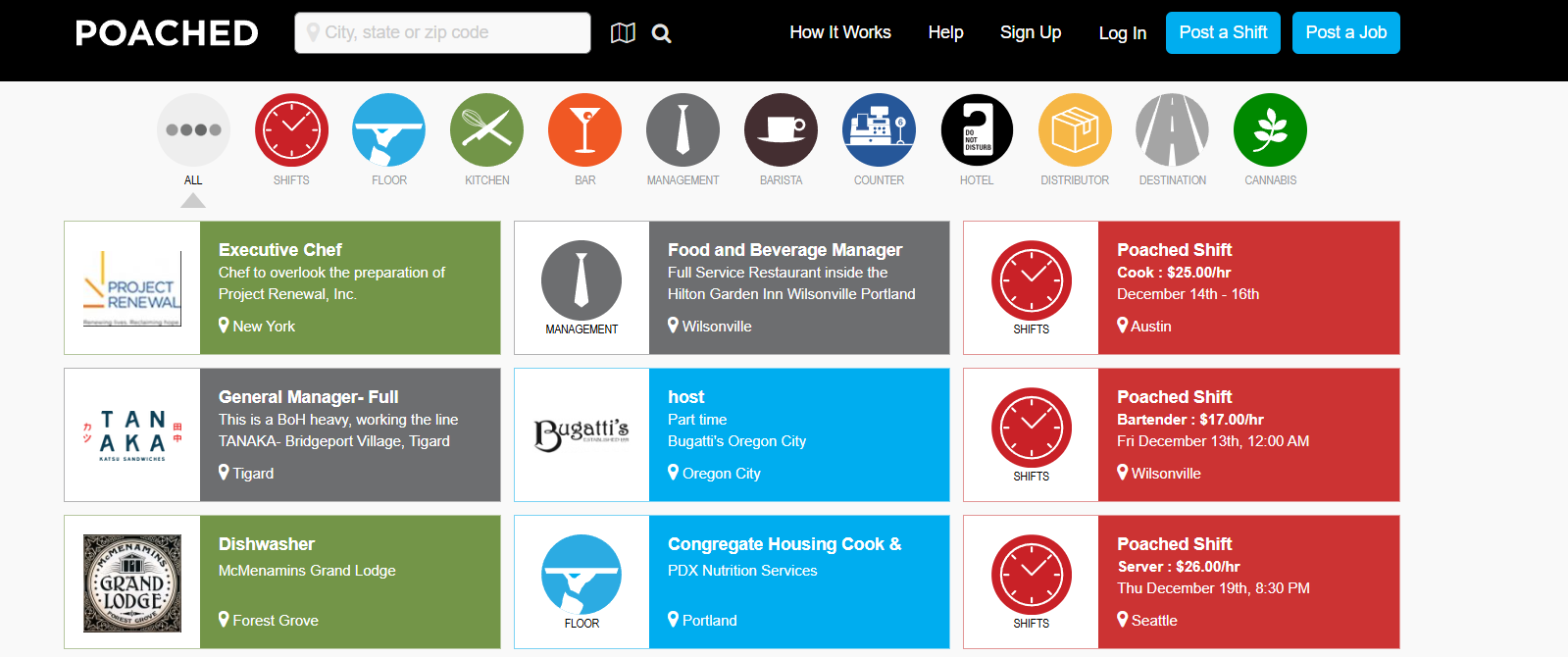
Poached Jobs is specifically designed for restaurant and food service professionals, offering direct connections to employers and streamlined applications.
Kitchen Managers can find a variety of listings tailored to their skills, from small eateries to upscale dining establishments.
| Pros | Cons |
| Specializes in food service jobs, eliminating postings that aren't relevant to this industry | Limited geographic scope, with a focus on major metropolitan areas |
| Straightforward and efficient application process | Fewer features compared to larger platforms like Indeed |
| Strong reputation in the restaurant industry for connecting quality talent with employers | Advanced functionality often requires a paid subscription. |
5. Hosco
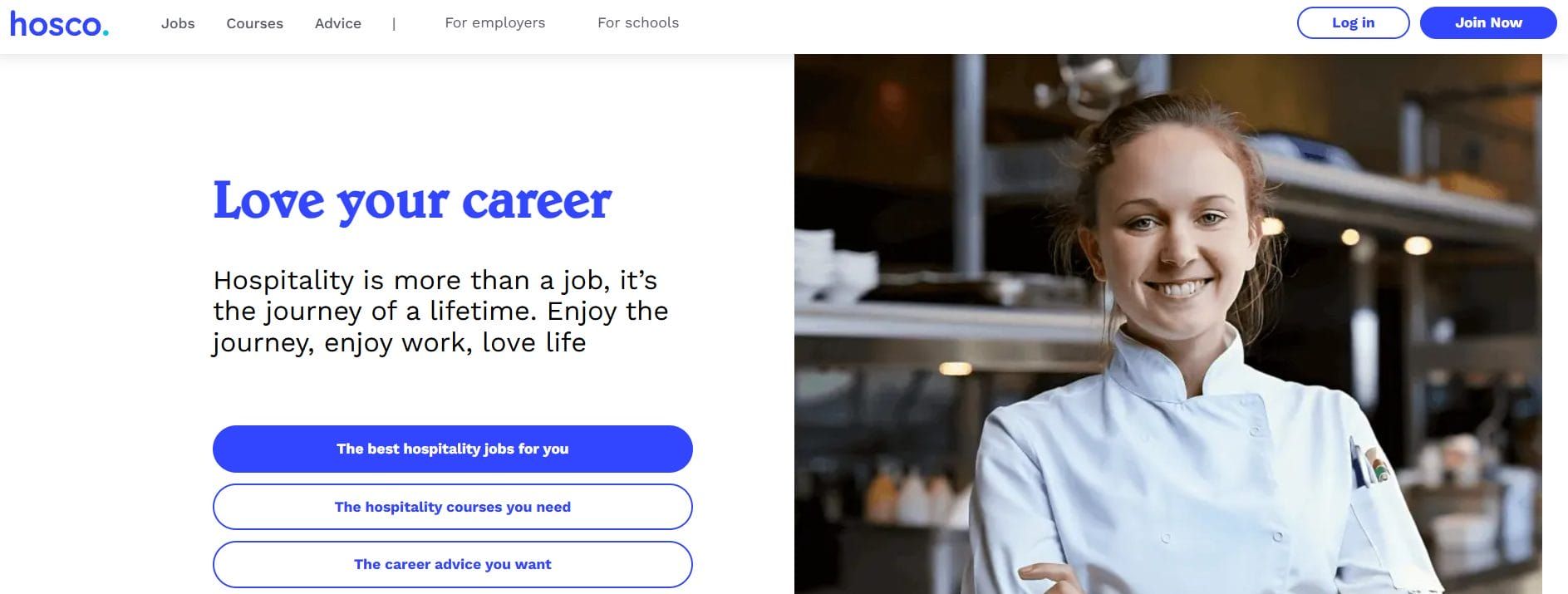
Hosco is a global hospitality network that offers job opportunities, career development resources and networking features.
For Kitchen Managers, Hosco provides listings in luxury hotels, restaurants and international resorts, making it ideal for those seeking diverse opportunities.
| Pros | Cons |
| Global reach with job postings from multiple countries | Some features require a paid membership for full access. |
| Networking opportunities with industry professionals and employers | Platform may be overwhelming due to its extensive offerings. |
| Educational content and career advice to enhance job seekers’ skills | Quality of job postings can vary depending on the employer. |
Find and Post Kitchen Managers Jobs With OysterLink
OysterLink stands out as a comprehensive resource for connecting Kitchen Managers with top opportunities in the food service industry.
Whether you're looking to advance your career or find exceptional talent to elevate your team, OysterLink provides tailored resources and listings specific to hospitality professionals.
Take the next step in your journey with confidence — explore OysterLink today and unlock the potential for success in the ever-evolving restaurant industry.
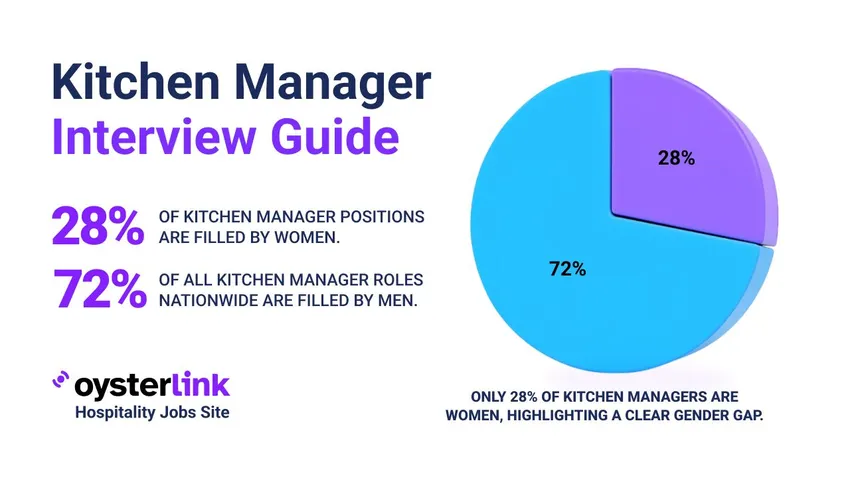









Loading comments...